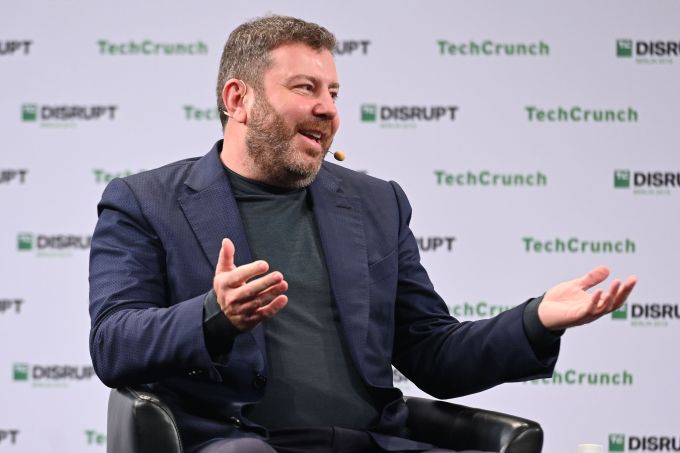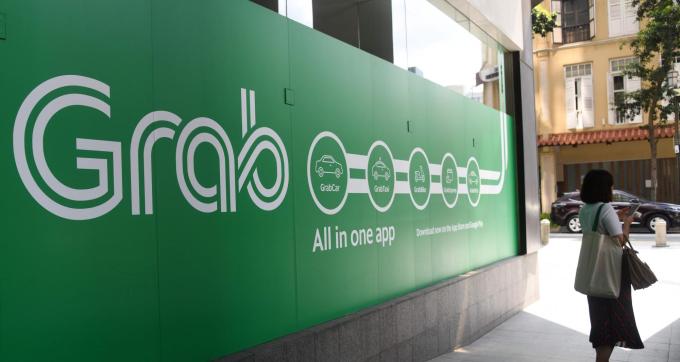| |
| |  Image Credits: Nigel Sussman | | Data from PitchBook shows 442 deals for U.S.-based AI/ML startups over the first three months of 2021, but if dealmaking continues at its current pace, we might see almost 1,600 rounds worth more than $40 billion this year. For today’s edition of The Exchange, Alex Wilhelm and new daily reporter Anna Heim interviewed Jocelyn Goldfein, managing director and general partner at Zetta Ventures, to learn about her firm’s approach to startups in the sector. Many investors are seeking AI/ML seed rounds to join, but she said her firm “also saw tremendous enthusiasm from Series A and B investors, especially around the tooling and infrastructure for AI projects (MLops and data infrastructure.)” Although healthcare is “hot,” Anna and Alex spotlighted startups using voice technology and speech recognition. “There will be an immense inflow of cash to fund speech companies now that VCs know that investments in speech pay off,” says Deepgram CEO Scott Stephenson. Thanks very much for reading Extra Crunch; have a great week! Walter Thompson
Senior Editor, TechCrunch
@yourprotagonist Read More | | | |
| |  Image Credits: Ben Sun | | In an exclusive guest post for Extra Crunch, Ben Sun, co-founder and general partner at Primary Venture Partners, wrote about his decade-long friendship with Coupang founder Bom Kim: “I've observed a brief quiet period following the IPO. But now I want to share how exactly our paths intersected, largely because Bom exemplifies what founders should aspire to and should seek: big risks, dogged determination and obsessive responsiveness to the market.” Read More | | | |
| |
| |  Image Credits: Bryce Durbin/TechCrunch | | From building out Facebook's first office in Austin to putting together most of Quora's team, Bain Capital Ventures managing director Sarah Smith has done a bit of everything when it comes to hiring. At TechCrunch Early Stage, she spoke about how to ensure the critical early hires are the right ones to grow a business. As an investor at Bain Capital Ventures, Smith has a broad view into the problems that companies face as they search for the right candidate to spur organizational success. She touched on a number of issues, such as who to hire and when, when to fire, and how to ensure diversity from the earliest days. Read More | | | |
| |  Image Credits: Bryce Durbin | | During a seed funding round, a founder needs to convince a venture capital investor on a vision. But during a Series A fundraise, napkin-stage ideas don't make the cut — a founder needs product progress, numbers and revenue (or at least a plan to eventually generate some). In many ways, the stakes are higher for a Series A — and Bucky Moore, a partner at Kleiner Perkins, joined TechCrunch Early Stage last week to give founders tactical advice on the process of raising one. Moore spoke about storytelling over semantics, pricing, and where his firm sees itself "raising the bar" for startups. Read More | | | |
| |  Image Credits: Gabby K from Pexels / Pexels under a Free to use license. | | For a long time, "revenue" seemed to be a taboo word in the startup world. Fortunately, things have changed with the rise of SaaS and alternative funding sources such as revenue-based investing VCs. Still, revenue modeling remains a challenge for founders. How do you predict earnings when you’re still figuring it out? Read More | | | |
| |  Image Credits: erhui1979 / Getty Images | | If you have a great idea within the open-core framework, expect your risks to be much lower than with a traditional business structure. Clearly communicate this fact to venture capitalists for the best chance at securing the seed funding your organization needs. But it takes more: Boasting a strong community around an emerging open-source product essentially serves as an "introduction letter" to venture capitalists. It highlights the founders' ability to successfully execute their vision, as well as the mission to bring their product to a commercial reality. Additionally, the iterative nature of open-source projects leads to fostering a sense of teamwork between the founders, their team, and investors and stakeholders. Read More | | | |
| |  Image Credits: Ureeka | | Melissa Bradley is the co-founder of a startup called Ureeka, an investor at 1863 Ventures, and a professor at Georgetown's business school. So it's not an understatement to say that she understands the fundraising process from every angle. She both invested and fundraised for her own startup during this last year, where the landscape has shifted drastically. At TechCrunch Early Stage, she led a session on how to nail your virtual pitch meeting. Bradley covered how to allocate your time during the meeting, how to prepare, how to close out the meetings with a clear list of action items, and what to avoid. Read More | | | |
| |  Image Credits: Eric Millette / Scale AI | | Scale CEO and co-founder Alex Wang credits their success since founding — which includes raising over $277 million and achieving break-even status in terms of revenue — to early support from investors, including Accel's Dan Levine. Accel haș participated in four of Scale's financing rounds, and Levine wrote one of the company's very first checks. So on this past week's episode of Extra Crunch Live, we spoke with Levine and Wang about how that first deal came together, and what their working relationship has been like in the years since. Read More | | | |
| |  Image Credits: Nigel Sussman | | Let's parse Uber's latest, vet its profit promise, consider its rivals and their performance, and then ask ourselves if the great ride-hailing and food-delivery booms will ever make back the money they cost to scale. Read More | | | |
| |  Image Credits: Noam Galai / Getty Images | | For UiPath, its initial IPO price interval is a disappointment, though the company could see an upward revision in its valuation before it does sell shares and begin to trade. But more to the point, the company's private-market valuation bump followed by a quick public-market correction stands out as a counter-example to something that we've seen so frequently in recent months. Is UiPath's first IPO price interval another indicator that the IPO market is cooling? Read More | | | |
| |  Image Credits: alexsl / Getty Images | | As artificial intelligence becomes more advanced, previously cutting-edge — but generic — AI models are becoming commonplace, such as Google Cloud's Vision AI or Amazon Rekognition. While effective in some use cases, these solutions do not suit industry-specific needs right out of the box. Organizations that seek the most accurate results from their AI projects will simply have to turn to industry-specific models. Any team looking to expand its AI capabilities should first apply its data and use cases to a generic model and assess the results. Let's dive into each of these approaches and how businesses can decide which one works for their distinct circumstances. Read More | | | |
| |  Image Credits: Atomico | | In the earliest stages of building a startup, it can be hard to justify focusing on anything other than creating a great product or service and meeting the needs of customers or users. However, there are still a number of surefire measures that any early-stage company can and should put in place to achieve "people ops" success as they begin scaling, according to venture capital firm Atomico's talent partners, Caro Chayot and Dan Hynes. Long story short: You need to recruit for what you need, but you also need to think about what is coming down the line. Read More | | | |
| |  Image Credits: ROSLAN RAHMAN/AFP / Getty Images (Image has been modified) | | Southeast Asian super-app Grab is going public via a SPAC. Grab, which provides ride-hailing, payments and food delivery, will trade under the ticker symbol “GRAB” on the Nasdaq exchange when the combination is complete. Let’s walk through several key points from Grab’s SPAC investor deck, including growth, segment profitability, aggregate costs and COVID-19, among other factors. Read More | | | |
| |
| |
| |
| |
Post a Comment